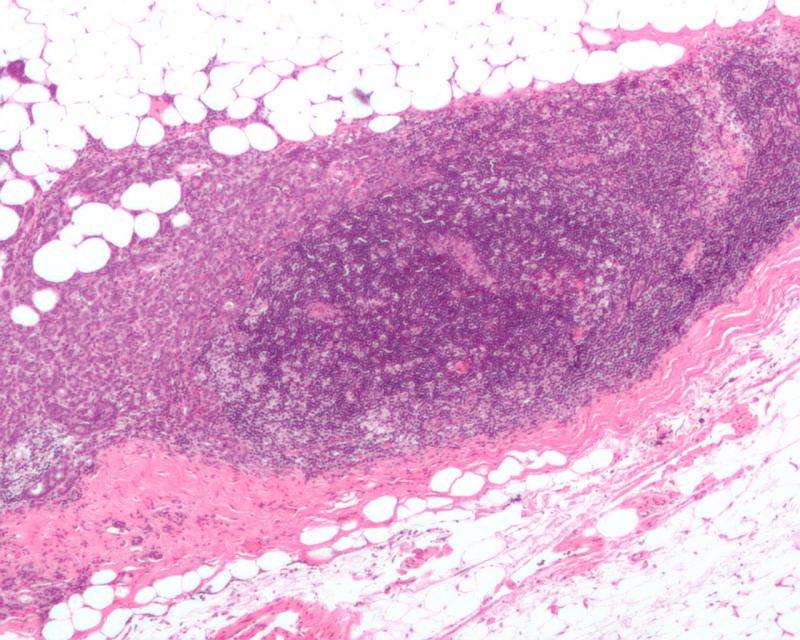New treatment for aggressive breast cancer

Approximately 10 to 15 percent of breast cancer cases do not respond to treatment with hormone therapy, which means that they are more aggressive and often recur. An international research team led by researchers at Lund University in Sweden has uncovered a way to treat these aggressive tumours through manipulation of the connective tissue cells of the tumour. The researchers are now developing a new drug that transforms aggressive breast cancer so that it becomes responsive to standard hormone therapy.
Cancer occurs as a result of mutations and other genetic changes that disable the growth control system normally present in our cells. However, new studies emphasise the importance of the communication of cancer cells with other cell types in the surrounding tissue, such as connective tissue, blood vessels and immune system cells, that enables the tumours to form, spread and resist treatment.
Breast cancer is one of the tumour types that is richest in connective tissue, providing a rationale for a major role of connective tissue cells in tumour growth.
There are a number of different types of breast cancer, each with different prognoses and treatment options. Patients with breast cancers that are hormone-sensitive (around 70 percent of all patients) have the best prognosis, whereas approximately 10-15 percent of patients have cancers that are insensitive to hormones and more aggressive (basal breast cancer). Basal breast cancers typically require more intensive treatment with chemotherapy, which may be associated with severe side effects.
"Our studies of the communication between breast cancer cells and their surrounding tissue have revealed a growth factor - PDGF-CC - which transmits information between the tumour cells and the connective tissue cells, mainly in basal breast cancers. Detailed analyses of around 1400 breast cancers showed that high levels of PDGF-CC in the tumour cells were associated with a poor prognosis," explains cancer researcher Kristian Pietras, Professor at Lund University.
Professor Pietras led a multidisciplinary and international research team based at the Lund University Cancer Centre at Medicon Village, in collaboration with researchers from Karolinska Institutet, the Olivia Newton-John Cancer Research Institute in Melbourne Australia, and University Hospital Bonn, in this groundbreaking research.
"Previously, it was believed that the various subgroups of breast cancer originated from different cell types in the mammary gland. Our research has shown that connective tissue cells can also modify tumour cells directly with regard to their sensitivity to hormones, which has significant implications in the development of more effective treatments," states Professor Ulf Eriksson at Karolinska Institutet, a co-investigator of the study.
In experimental models, the researchers tested a new biological drug they have developed which blocked the PDGF-CC-mediated communication between the tumour cells and the connective tissue cells. Remarkably, this resulted in the transformation of the basal breast cancers into hormone-sensitive luminal breast cancers. As a consequence of this transformation, the tumours then became highly responsive to conventional hormone therapy.
"We have thus developed a new treatment strategy for aggressive and difficult-to-treat breast cancers that restores sensitivity to hormone therapy. These findings have major implications in the development of more effective treatments for patients with aggressive breast cancer," concludes Kristian Pietras.
More information: Microenvironmental control of breast cancer subtype elicited through paracrine platelet-derived growth factor-CC signaling, Nature Medicine, nature.com/articles/doi:10.1038/nm.4494


















